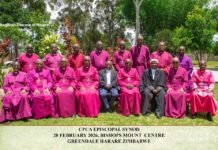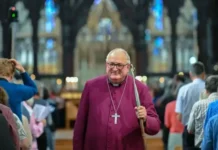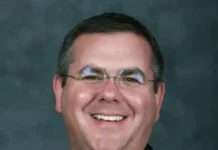“The results of the elections to the standing committee of the General Synod (GS), held yesterday, reveal the conservatives are now in almost complete control of the national church,” longtime Anglican commenter Muriel Porter writes in The Guardian and The Conversation.
“Progressive Anglican clergy and laity from around the country who had long been members of the committee have been cast aside. From here on, the national church’s central structures will prosecute a virtual carbon copy of Sydney’s conservative position on same-sex marriage and other issues as well.”
A slow ‘conservatising’ of the church is proceeding.
Porter, a long-term writer with a progressive stance, is right to draw attention to the election results. They do show conservatives taking over key committees. However, the House of Bishops and the Appellate Tribunal have not changed hands.
But a slow ‘conservatising’ of the church is proceeding. The House of Bishops is likely to have a conservative majority when the GS meets in four years. The Tribunal membership will also change.
This does not amount to a complete takeover because neither the Left nor the Right can do this. Unusually for Anglicanism, dioceses in Australia have a high degree of autonomy – which in the past has meant that the Diocese of Sydney maintained its evangelical character despite there being a massive Anglo-Catholic and progressive majority in most other dioceses.
Those numbers are shifting. It will soon be the Bishops in progressive dioceses who will seek to defend their boundaries against the national church’s conservative majority.
The conservatives will need to consider their response to this, possibly by planting churches in progressive dioceses. These churches could be unofficially Anglican in a parallel structure, or members of the fast-growing Fellowship of Independent Evangelical Churches.
A morning tea huddle between progressive and conservative leaders produced an amended motion affirming one-woman, one-man marriage as the doctrine of the Anglican Church of Australia. This motion gives protections under anti-discrimination law.
Another huddle produced a motion that thanked the Appellate Tribunal (AT) for its work, adding thanks to the work of two bodies that had produced reports that the AT disagreed with.
“I count you in before I count you out” is a principle Bishop Matt Brain (Bendigo) encouraged, urging that the various spiritual cultures of the church “build on what we have in common.” The motion described any separation as “diminishing ourselves. ”
“Where we disagree, we should disagree in Christian love and charity.” – Dorothy Lee
Dorothy Lee listed doctrines where the GS has “a vast degree of unity”, suggesting 90 per cent of doctrinal agreement. “Where we disagree, we should disagree in Christian love and charity.”
Mark Thompson (Sydney), Principal of Moore College, moved an amendment to insist that “the unity is anchored here in the God-breathed words of scripture.” The amendment passed very narrowly.
But a motion not to put the motion, moved by Matthew Anstey (Adelaide), passed. From this observer’s view, the difficulty was the issue of whether the motion should ask that the “theological cultures” in the church should be respected.
The Aboriginal Bishop, Chris McLeod, moved that Australian governments should raise the age of criminal responsibility from 10 to 14 years. He emphasised the effect of early imprisonment on First Nations youth: “it will follow them through their lives” and “train them in criminality.” Our society could spend in better ways the cost of incarcerating a child at $500,000 per child a year. “Jesus said ‘let the children come to me and do not stop them,’” McLeod quoted.
“How many of us would know the age of criminal responsibility is just ten?” – Peter Sandeman
“How many of us would know the age of criminal responsibility is just ten?” asked Peter Sandeman (Adelaide), seconding the motion. “A recent survey showed that only 7 per cent of Australians could correctly identify that ten is the age of criminal responsibility.
“While Aboriginal young people (under the age of 18) are 6 per cent of the population, 50 per cent of young people under some form of supervision are Indigenous young people, three in five of those who are incarcerated are Indigenous young people.”
Zac Veron (Sydney) opposed the motion, citing the case of James Bulger, a two-year-old who was murdered by two ten-year-old young boys in 1993.
The motion quickly passed.
Thirty years after the first female priests were ordained, a motion noted that 23 per cent of the clergy are women in 2022, acknowledging their important contribution (and 33 per cent of the GS).
Archbishop Kay Goldsworthy and other women ordained 30 years ago were present.
The motion passed by acclamation.



